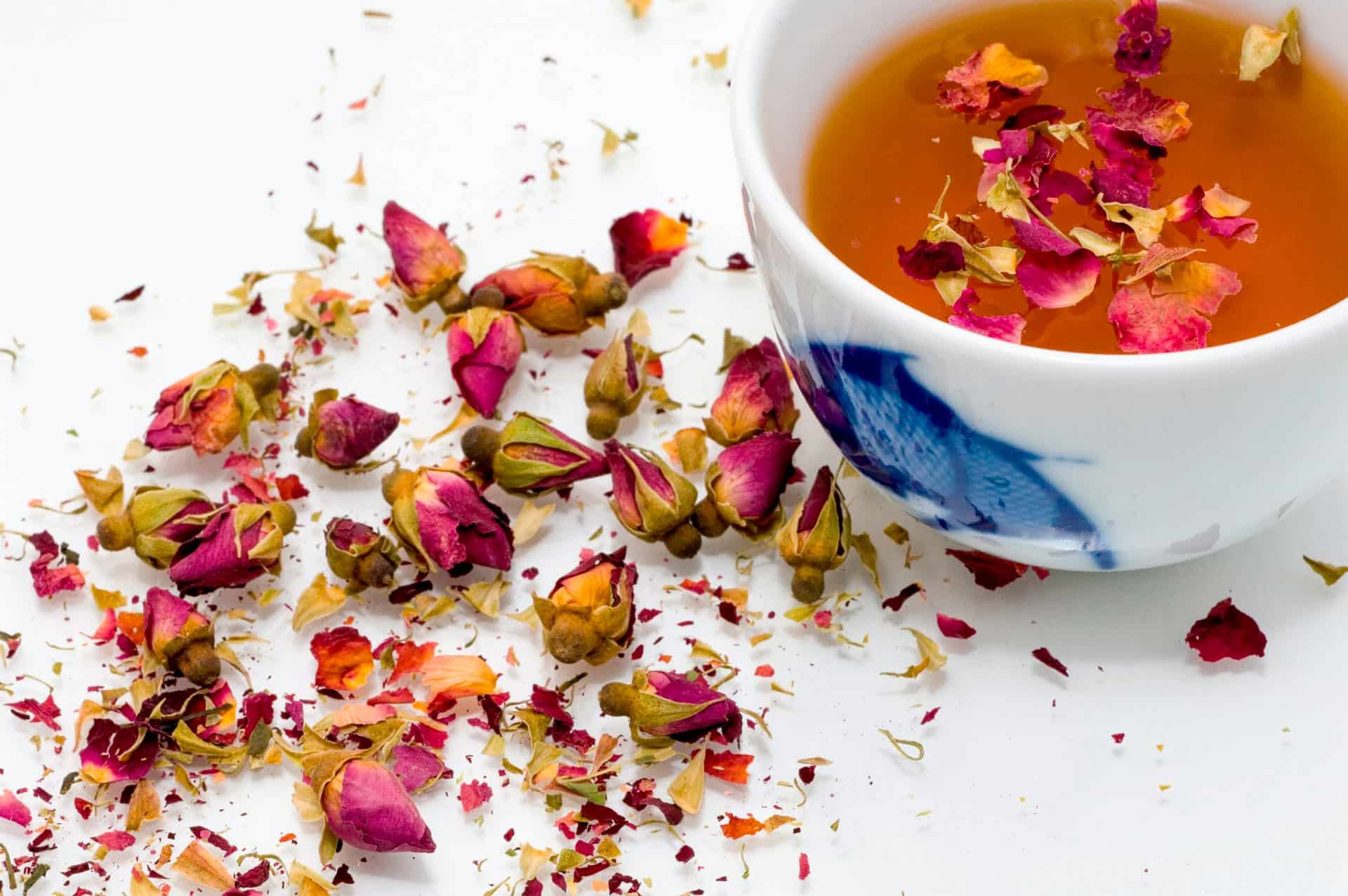
By now, you certainly know of tea’s many benefits for your body, from boosting your immune system to fighting inflammation. However, you may not have known that tea is also good for your hair when used in a tea rinse. This centuries-old beauty practice is coming around again as a new haircare trend in the natural beauty world. Anyone looking to naturally boost their hair health, as well as tackle breakage, shedding or dandruff may be interested in trying a tea rinse on their next self-care day. Discover more about tea rinses, plus their benefits and how you can use them at home to promote healthy hair.
Essentially, a tea rinse involves soaking your hair and scalp in tea brewed from the Camellia sinensis (tea) plant. Generally, this is done on hair that is clean and freshly shampooed. You can use different types of tea depending on the properties your hair needs. Some common types of tea used for tea rinses include:
Each of these types of tea are processed differently and contain different vitamins, minerals and levels of caffeine. Therefore, each tea will have varying results.
Tea rinses offer antioxidants, specifically polyphenols, which can improve hair health. These antioxidants are thought to support hair growth and may prevent hair loss. Furthermore, the caffeine present in many types of tea (mainly green and black) can also offer some benefits to hair. Studies have also shown that caffeine applied to the scalp may encourage the production of keratin, which also encourages hair growth.
According to Holland & Barrett, some other benefits teas offer include:
When it comes to using tea to improve hair colour, the type of tea will depend on hair type. Redheads and blondes will benefit most from white tea, whereas brunettes will benefit from using Rooibos tea. Also, chamomile tea plus a bit of honey and lemon can brighten ashy blond hair. Last but not least, black tea can bring colour back to dark brown or black hair.
If you have low porosity hair, you’ll need to add an extra step to your tea rinse to keep your hair looking healthy and shiny. Not sure what your hair’s porosity is? Find out using our hair porosity guide.
Should you have dry or low porosity hair, it’s best to use a conditioner after you rinse the tea from your hair. A conditioner will help ensure that the caffeine doesn’t leave your hair looking dry or dull.
So, you’ve decided you want to delve into the ancient world of tea rinses? Here’s what you need to do to prepare a tea rinse:
Use the tea in your cupboard for a tea rinse to give your hair a lovely shine and naturally promote hair growth. If you are searching for more natural hair care tips and recipes, check out WapoBeauty’s eBooks! The Natural Skincare in 21 Formulas eBook is still on sale, so take advantage of the special price. As always, you can find comprehensive skincare lessons in our Complete Facial Skincare Online Course for Beginners and discover how to make professional, safe, and stable natural beauty products. We invite you to enrol in the course where you will learn how to make a luxurious Hyaluronic acid serum, cleanser, cream, face mask, moisturiser, gel, lotion, serum, toner, mist, exfoliant, elixir, ointment and fresh cosmetics. Also, be sure to follow WapoBeauty on Instagram for all your natural beauty recipes and questions!
Ashuni Pérez is an American writer based in Valencia, Spain. She has a passion for natural beauty and the environment. Ashuni loves to cycle and drink smoothies in the sun. Follow her on Instagram at @ashuuuuni.
© 2024 Wapo.ie
2 responses
Hallo, very welcome recipe. Many women in particular, ( but have heard from men too) have experienced hair loss, poor quality condition after having coved. High temperatures has been found to disrupt hair growth/ shedding cycles, prolonging shedding to hair loss. This is breaking news- your tea rescue for hair! Thank you, will pass on as needed.
Hi Lorraine, we’re glad that you found this article helpful! Please, do feel free to share!